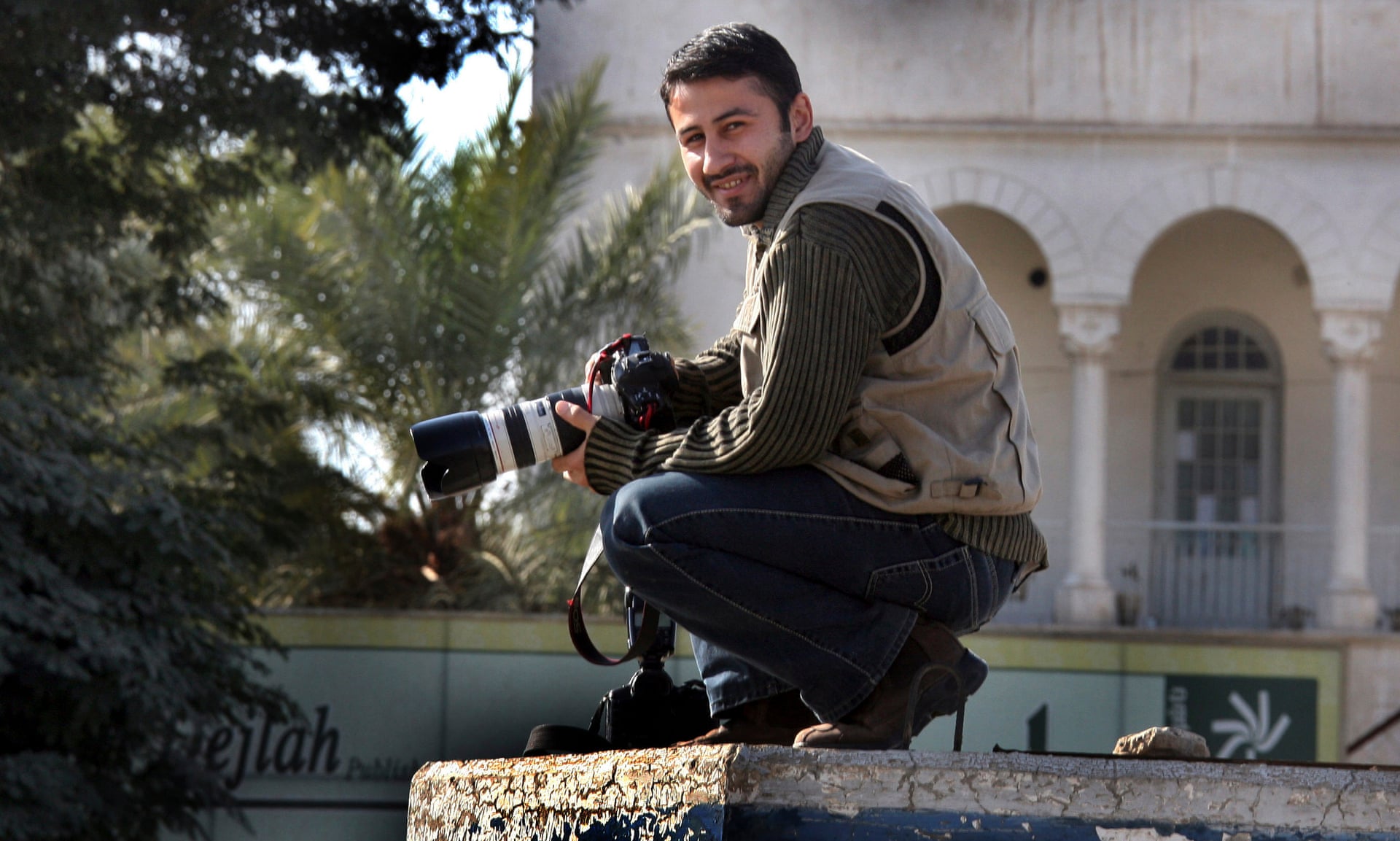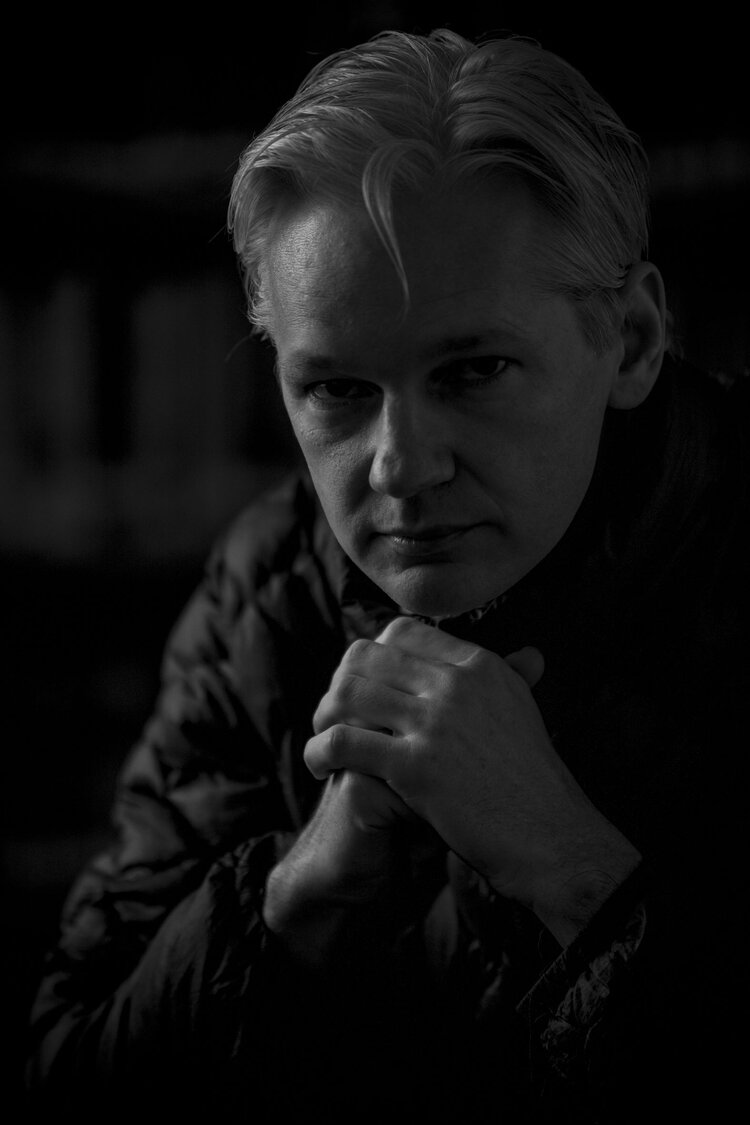On 16th June 2020 Paul Daley reports
Former Reuters journalist Dean Yates was in charge of the bureau in Baghdad when his Iraqi colleagues Namir Noor-Eldeen and Saeed Chmagh were killed. A WikiLeaks video called Collateral Murder later revealed details of their death
For all the countless words from the United States military about its killing of the Iraqi Reuters journalists Namir Noor-Eldeen and Saeed Chmagh, their colleague Dean Yates has two of his own: “All lies.”
The former Reuters Baghdad bureau chief has also inked some on his arm – a permanent declaration of how those lies “fucked me up”, while he blamed first Namir – unfairly – and then himself for the killings.
…
Is the US concerned that referring to the video will give rise to war crimes charges against the military personnel involved in the attack? Certainly, bringing the video into the prosecution case against Assange could only vindicate his role in exposing the US military’s lies about the ghastly killings.
‘Loud wailing broke out’
Early on 12 July 2007 Yates sat in the “slot desk” in the Reuters office in Baghdad’s red zone. He was ready for the usual: a car bomb attack while Iraqis headed to work, a militant strike on a market, the police or the Iraqi military. It was quieter than usual.
Yates recalls: “Loud wailing broke out near the back of our office … I still remember the anguished face of the Iraqi colleague who burst through the door. Another colleague translated: ‘Namir and Saeed have been killed.’”
Reuters staff drove to the al-Amin neighbourhood where Namir had told colleagues he was going to check out a possible US dawn airstrike. Witnesses said Namir, a photographer, and Saeed, a driver/fixer, had been killed by US forces, possibly in an airstrike during a clash with militants.
While the bureau was in a crisis of anger and mourning, Yates still had to write the early stories about the two men killed on his watch. He initially wrote that they had died in what Iraqi police called “American military action”.
Yates says: “Pictures taken by our photographers and camera operators showed a minivan at the scene, its front mangled by a powerful concussive force … There was much we didn’t know. US soldiers had seized Namir’s two cameras, so we couldn’t check what he’d been photographing.”
By early evening the military spokesman still had not replied. Yates pressed him for a response – and for the return of Namir’s cameras. Just after midnight, the US military released a statement headlined: “Firefight in New Baghdad. US, Iraqi forces kill 9 insurgents, detain 13.”
It quoted a US lieutenant as saying: “Nine insurgents were killed in the ensuing firefight. One insurgent was wounded and two civilians were killed during the firefight. The two civilians were reported as employees for the Reuters news service. There is no question that Coalition Forces were clearly engaged in combat operations against a hostile force.”
Yates, shaking his head, says: “The US assertions that Namir and Saeed were killed during a firefight was all lies. But I didn’t know that at the time, so I updated my story to take in the US military’s statement.”
It was a shocking time for locally engaged staff of foreign news organisations in Baghdad. On 13 July, the day of Namir and Saeed’s funerals, Khalid Hassan, a New York Times reporter/translator, was shot dead.
After the funerals Yates pressed the US military for Namir’s cameras and for access to cameras and air-to-ground recordings involving the Apache that killed his colleagues.
On 14 July, Yates learned that militants had murdered a Reuters Iraqi text translator.
In an effort to save employees’ lives, he began collaborating with other foreign news organisation managers to engage with the US military to better understand its rules of engagement.
“We dealt with them in good faith,” he says. “What a joke that turned out to be.”
‘Cold-blooded murder’
On 15 July the US military returned Namir’s cameras. Namir had photographed the aftermath of an earlier shooting and, a few minutes later (just before his death), US military Humvees at a nearby crossroads. There were no frames of insurgent gunmen or clashes with US forces. Date and time stamps show that three hours after Namir died his camera photographed a US soldier in a barrack or tent. The troops who mopped up the killing scene evidently messed around with his cameras afterwards.
Reuters staff had by now spoken to 14 witnesses in al-Amin. All of them said they were unaware of any firefight that might have prompted the helicopter strike.Advertisement
Yates recalls: “The words that kept forming on my lips were ‘cold-blooded murder’.”
The Iraqi staff at Reuters, meanwhile, were concerned that the bureau was too soft on the US military. “But I could only write what we could establish and the US military was insisting Saeed and Namir were killed during a clash,” Yates says.
The meeting that put him on a path of destructive, paralysing – eventually suicidal – guilt and blame “that basically fucked me up for the next 10 years”, leaving him in a state of “moral injury”, happened at US military headquarters in the Green Zone on 25 July.
Yates and a Reuters colleague met the two US generals who had overseen the investigation into the killings of Namir and Saeed.
It was a long, off-the-record meeting. The generals revealed a mass of detail, telling them a US battalion had been seeking militias responsible for roadside bombs. They had called in helicopter support after coming under fire. One Apache had the call sign Crazy Horse 1-8.
“They described a group of men spotted by this Apache,” Yates says. “Some appeared to be armed and Crazy Horse 1-8 … had requested permission to fire because we were told these men were ‘military-aged males’ … and they appeared to have weapons and they were acting suspiciously. So, we were told those men on the ground were then ‘engaged’.”
The generals showed them photographs of what was collected after the shooting, including “a couple of AK-47s [assault rifles], an RPG [rocket-propelled grenade] launcher and two cameras”.Advertisement
“I have wondered for many years how much of that meeting was carefully choreographed so we would go away with a certain impression of what happened. Well, for a time it worked,” Yates says.
There was some discussion about what permitted Crazy Horse 1-8 to open fire if there was no firefight. One of the generals insisted the dead were of “military age” and, because apparently armed, were therefore “expressing hostile intent”.
Yates says: “Then they said, ‘OK, we are just going to show you a little bit of footage from the camera of Crazy Horse 1-8.’”
The generals showed them about three minutes of video, beginning with a group including Saeed and Namir on the street.
“We heard the pilot seek permission from the ground to attack.” After the pilot receives permission, the men are obscured. The chopper circles for a clear aim.
Yates says: “When the chopper circled around, Namir can be seen going to a corner and crouching down holding something – his long-lens camera – and is taking photographs of Humvees. One of the crew says, ‘He’s got an RPG’ … He’s clearly agitated. And then another 15, 20 seconds the crew gets a clear line of sight … I’m watching Namir crouching down with his camera which the pilot thinks is an RPG and they’re about to open fire. I then see a man I believe to be Saeed walking away, talking on the phone. Then cannon fire hits them. I’ve got my head in my hands … The generals stop the tape.”
The generals downplayed a slightly later incident when they said a van had pulled up and Crazy Horse 1-8 assessed it as aiding the insurgents, removing their bodies and weapons.
“At some point after watching that footage it became burnt into my mind that the reason the helicopter opened fire was because Namir was peering around the corner. I came to blame Namir for that attack, thinking that the helicopter fired because he made himself look suspicious and it just erased from my memory the fact that the order to open fire had already been given. They were going to open fire anyway. And the one person who picked this up was Assange. On the day that he released the tape [5 April 2010] he said that helicopter opened fire because it sought permission and was given permission. And he said something like, ‘If that’s based on the rules of engagement then the rules of engagement are wrong.’”
Reuters asked for the entire video. The general refused, saying Reuters had to seek it under freedom of information laws. The agency did so, but its requests were denied.
During the next year, Yates checked when it might be released. All the while he and other executives from foreign news organisations continued their good faith meetings with various US generals to enhance the safety of their Baghdad staff.
Read whole article with many photos in the Guardian
And a follow up interview of Dean Yates by Fran Kelly on ABC Radio National Breakfast

